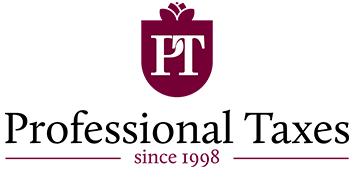For small business owners, the question of whether to handle bookkeeping themselves or hire a professional is a common—and critical—dilemma. On one hand, doing it yourself (DIY) can seem like a cost-saving measure. On the other hand, hiring a professional bookkeeper promises expertise, accuracy, and time savings. But how do you decide which path is right for your business?
The truth is, poor bookkeeping can lead to costly mistakes, missed opportunities, and unnecessary stress. According to a survey by QuickBooks, 40% of small business owners find bookkeeping and taxes to be the worst part of owning a business . Yet, many hesitate to outsource, fearing they’ll lose control or incur additional costs.
In this guide, we’ll explore the pros and cons of DIY bookkeeping versus hiring a professional, helping you determine the best approach for your business. Whether you’re just starting out or scaling up, understanding when to bring in a bookkeeper can save you time, money, and frustration.
Main Reasons to Hire a Professional Bookkeeper
1. Save Valuable Time
One of the most compelling reasons to hire a bookkeeper is the time it saves. Business owners often wear multiple hats, juggling sales, marketing, product development, and customer service. Bookkeeping, while essential, can be tedious and time-consuming. A professional bookkeeper takes this burden off your plate, freeing you to focus on activities that generate revenue and drive growth.
“Having our books as accurate as possible makes a huge difference in what decisions we make for the future of our business,” says Gisella from Infinite Book Equity. This sentiment underscores the value of delegating bookkeeping tasks to someone who can do them efficiently and accurately.
2. Leverage Expertise in Accounting Software
Bookkeepers are trained in using accounting software like QuickBooks, Xero, and FreshBooks. They ensure transactions are categorized correctly, reports are generated accurately, and financial data is organized systematically. For business owners unfamiliar with these platforms, learning the ropes can be overwhelming—and errors can be costly.
3. Avoid Costly Errors
Mistakes in bookkeeping can lead to inaccurate financial statements, incorrect tax filings, and even IRS penalties. A professional bookkeeper minimizes these risks by ensuring your records are precise and up-to-date. This level of accuracy is especially important during tax season, where errors can result in missed deductions or audits.
4. Ensure Consistent Financial Tracking
Outdated or disorganized books hinder your ability to assess your business’s financial health. A professional bookkeeper ensures your records are consistently updated, providing a clear and timely overview of income, expenses, and profitability. This consistency is crucial for making informed decisions about cash flow, investments, and growth strategies.
5. Streamline Tax Preparation
Professional bookkeepers organize your financial data in a way that makes tax preparation smoother and more efficient. By maintaining accurate records throughout the year, they help identify eligible deductions, potentially saving you money. Additionally, accountants and CPAs appreciate receiving well-organized books, which reduces their workload and lowers your fees.
6. Scale Your Business Effectively
As your business grows, so does the complexity of your finances. Managing payroll, tracking inventory, and reconciling accounts become more challenging. A professional bookkeeper brings specialized knowledge to handle these tasks, ensuring your financial processes scale seamlessly with your business.
Key Benefits of Hiring a Professional Bookkeeper
1. Significant Time Savings
By outsourcing bookkeeping, you free up valuable hours to focus on core business activities. For example, a tech startup founder who hired a bookkeeper early on reported “incredibly smooth” accounting processes, enabling them to focus on growth and investor relations.
2. Improved Accuracy and Reliability
Professional bookkeepers provide accurate and reliable financial data, which leads to better insights into business performance. Understanding your profitability and cash flow helps you set realistic goals and identify areas for improvement.
3. More Informed Decisions
Timely and accurate financial reports empower you to make smarter business decisions. For instance, knowing your profit margins allows you to adjust pricing strategies or cut unnecessary expenses.
4. Cost Savings in the Long Run
While hiring a bookkeeper involves an upfront cost, the return on investment can be significant. Avoiding late payment fees, missed deductions, and costly errors often offsets the expense. Palek Bookkeeping suggests calculating your hourly rate and the time spent on DIY bookkeeping to understand the true cost—and potential ROI—of outsourcing.
5. Reduced Stress
Bookkeeping can be stressful, especially if it’s not your strength or interest. Delegating this task to a professional gives you peace of mind, knowing your financial records are in capable hands.
Risks of Ignoring Professional Bookkeeping
1. Wasting Time
DIY bookkeeping can consume hours each week, diverting your attention from income-generating activities. This inefficiency can hinder business growth and reduce revenue.
2. Disorganized Records
Without proper systems in place, financial records can quickly become chaotic. Out-of-date books make it difficult to assess your business’s financial health and plan for the future.
3. Increased Stress
Struggling with bookkeeping adds unnecessary frustration, particularly if it’s not something you enjoy or excel at. As Joe from Avalon Accounting notes, some business owners report dissatisfaction with DIY bookkeeping, citing higher-than-expected bills and lack of confidence in their numbers.
4. Missed Deductions and Penalties
Poor record-keeping increases the likelihood of missing eligible tax deductions, leading to higher liabilities. Additionally, inadequate bookkeeping can result in IRS penalties for late or inaccurate filings.
5. Unpredictable Cash Flow
A lack of consistent financial tracking creates challenges in managing cash flow. Without a clear picture of income and expenses, planning becomes nearly impossible.
When Is It Time to Hire a Professional?
According to industry experts, certain milestones indicate the need for professional bookkeeping:
- Revenue Growth : Businesses generating 100,000–200,000 in annual revenue often benefit from hiring a bookkeeper, as financial decisions become more complex.
- Hiring Employees : Adding staff requires meticulous payroll management, which a professional bookkeeper can handle efficiently.
- Scaling Operations : Expanding your product line, entering new markets, or increasing inventory necessitates detailed financial insights.
- Time Constraints : If bookkeeping consumes too much of your time, it’s a sign to outsource.
- Preparation for Investment : Investors and lenders expect accurate, up-to-date financial records. A professional bookkeeper ensures your books meet these standards.
FAQs About Hiring a Professional Bookkeeper
Q: How much does a bookkeeper cost?
A: Costs vary based on the scope of services but typically range from 200–600 per month for small businesses.
Q: Will I lose control over my finances if I hire a bookkeeper?
A: No. A bookkeeper handles recording transactions, while you retain full control over financial decisions.
Q: Can I use accounting software instead of hiring a bookkeeper?
A: While software can help, it doesn’t replace the expertise of a professional who ensures accuracy and compliance.
Q: When should I consider hiring a bookkeeper?
A: Signs include disorganized records, time constraints, or growing complexity in your finances.
Q: How do I choose the right bookkeeper?
A: Look for experience, certifications, and positive reviews. Vetting candidates thoroughly ensures quality service.

